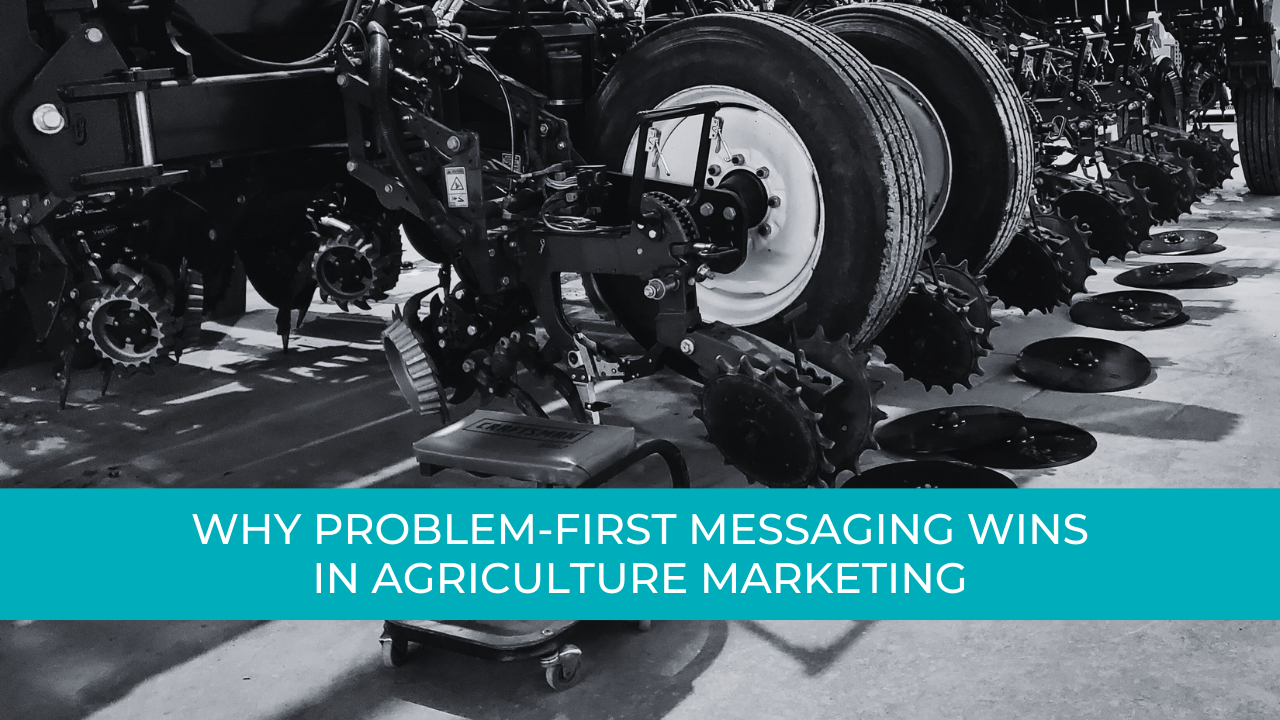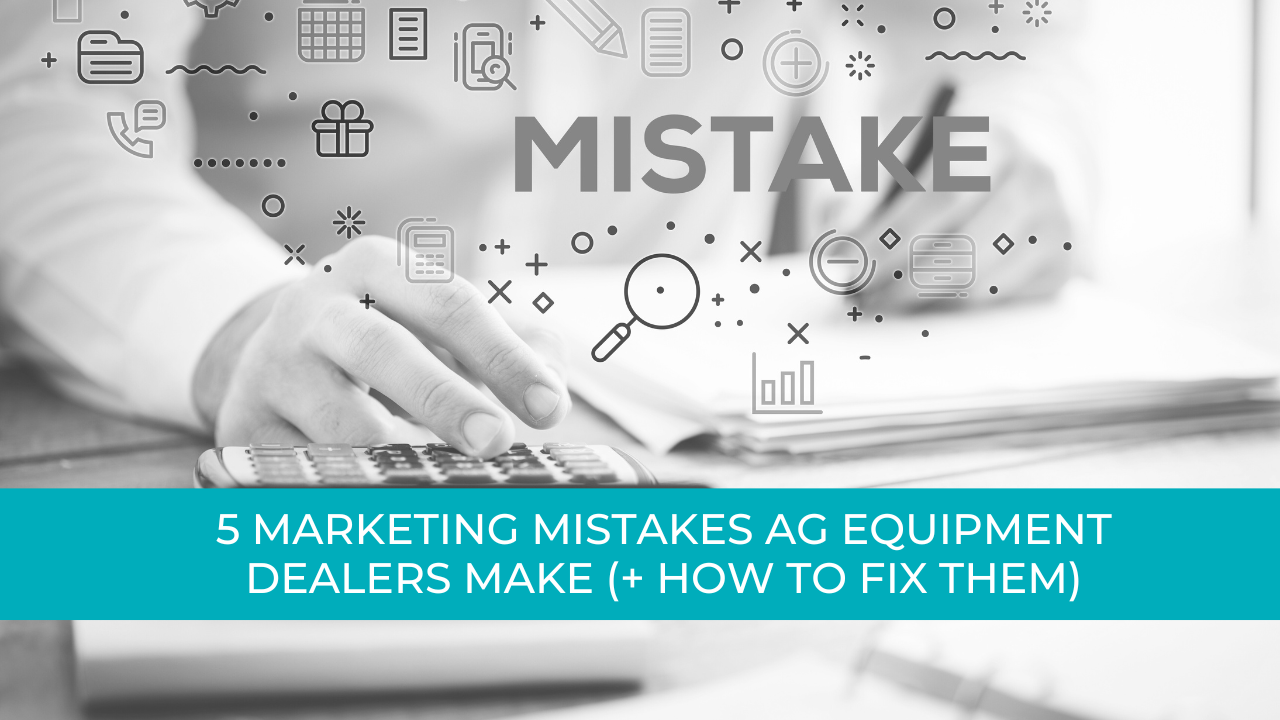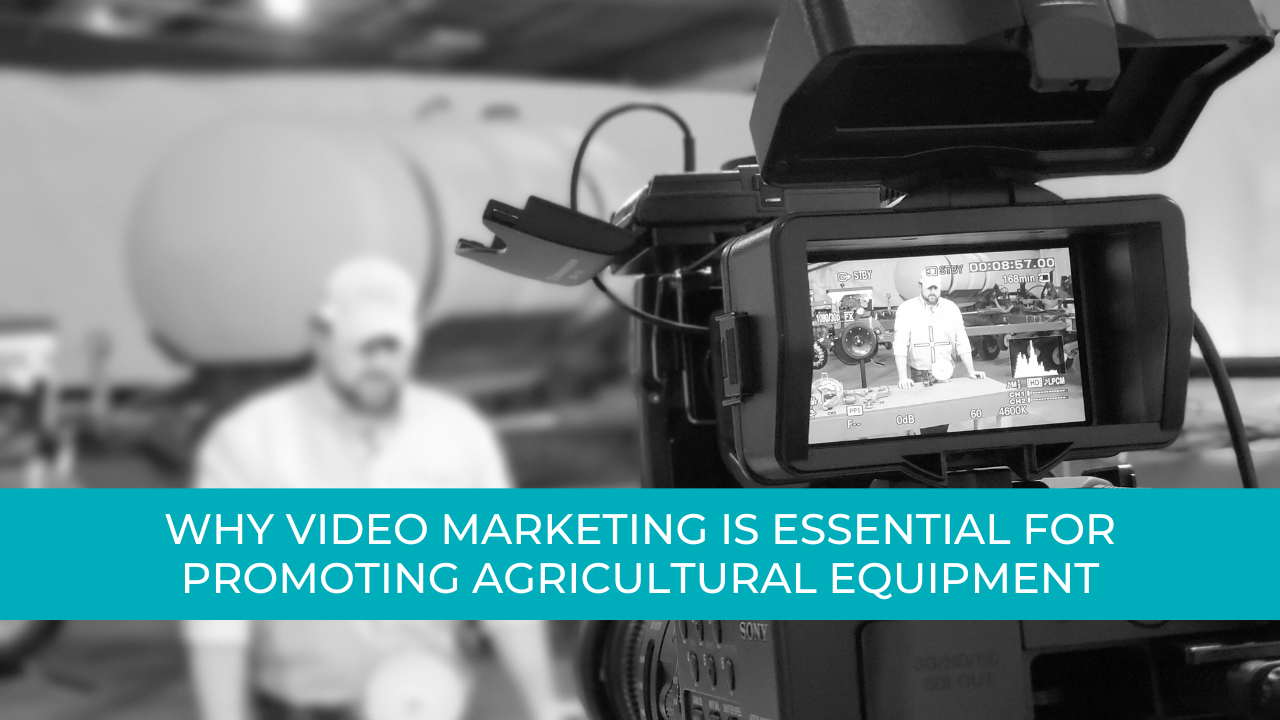10 Tips to Boost Agricultural Market Competitiveness
By Laura Sutherly, Founder & Digital Marketing Strategist at Agtivation / April 30, 2025
10 Tips to Boost Agricultural Market Competitiveness
In today's agricultural market, understanding your target audience is essential for success.
Analyzing consumer preferences and behaviors can help you tailor your offerings effectively.
But that's just the beginning. Crafting a professional online presence and implementing SEO
strategies can further enhance your visibility. Additionally, engaging with local communities
fosters loyalty that can set you apart from competitors. Let's explore each of these strategies in
detail to uncover how they can elevate your market position.

Key Takeaways
● Understand customer preferences and market trends to tailor offerings and foster loyalty
among consumers.
● Build a strong online presence with an engaging website and optimized content for
increased visibility and credibility.
● Leverage social media to create authentic connections and share compelling visual
stories that resonate with your audience.
● Collaborate with local businesses and organizations to enhance community involvement
and create mutually beneficial partnerships.
● Regularly monitor performance metrics and be flexible in adjusting strategies to stay
relevant and competitive in the market.
Understand Your Target Audience
How well do you really know your customers? Understanding your target audience is vital for
any agricultural business aiming to thrive. Explore customer preferences, as they reveal insights
into what drives buying decisions. Tracking market trends helps you stay ahead, ensuring your
offerings align with evolving demands. Use surveys, social media interactions, and sales data to
gather valuable feedback. This information not only informs your product development but also
shapes your marketing strategies. By analyzing these aspects, you can create tailored
experiences that resonate with your audience. Remember, a deep understanding of your
customers fosters loyalty and encourages repeat business, ultimately improving your
competitiveness in the agricultural market. Stay adaptable to their changing needs, and you'll
cultivate lasting relationships.
Create a Professional Website
Creating a professional website is crucial for your agricultural business to stand out in a
competitive market. A well-designed site not only enhances your credibility but also serves as a
key tool for engaging customers and showcasing your products. By focusing on critical design
elements, you can guarantee your website effectively communicates your brand's message and
attracts potential buyers.
Importance of a Website
Ever wondered why a professional website is essential for your agricultural business? A well-
crafted website boosts your online presence and showcases your products and services to
potential customers. It serves as a central hub for information, helping you build credibility and
trust within the industry. With a strong online presence, you can reach a broader audience,
which is critical for increasing sales and improving market competitiveness. Furthermore, a
professional website can enhance customer engagement through features like blogs or
newsletters, keeping your audience informed and connected. The website benefits extend to
improved search engine rankings, making it easier for customers to find you. Ultimately,
investing in a professional website is fundamental for thriving in today's digital agricultural
landscape.
Key Design Elements
When designing a professional website for your agricultural business, there are several key
elements to contemplate that can make a significant impact. First, focus on the user interface; a
clean, intuitive layout enhances user experience, encouraging visitors to explore your offerings.
Incorporating current design trends—like responsive design and minimalism—guarantees your
site remains visually appealing and functional across devices. Additionally, prioritize high-quality
images and engaging content that reflects your brand's identity. Clear calls-to-action guide
users toward desired actions, increasing conversion rates. Finally, verify your site is optimized
for search engines, improving your visibility. By integrating these elements, you can create a
professional website that attracts customers and strengthens your market position.
Optimize for Search Engines
While many agricultural businesses focus on their products and services, optimizing for search
engines is essential for increasing online visibility. Start with effective keyword research to
identify terms potential customers use when searching for agricultural products. This helps
guarantee your content resonates with your audience. Next, prioritize content optimization by
incorporating these keywords naturally into your website, blog posts, and product descriptions.
Remember, high-quality, relevant content not only improves search rankings but also engages
visitors and builds trust. Regularly update your website with fresh information to signal to search
engines that your site is active. By focusing on these strategies, you can enhance your online
presence and attract more customers to your agricultural business.
Utilize Social Media Effectively
Social media offers a powerful way for agricultural businesses to connect with customers and
showcase their unique products. By staying updated on social media trends, you can tailor your
content to what resonates with your audience. Implement engagement strategies like polls, Q&A
sessions, and live videos to foster interaction. Regularly sharing informative posts about your
farming practices, sustainability efforts, or seasonal offerings can build trust and loyalty among
customers. Don't overlook the importance of visuals; high-quality images and videos can
enhance your message. In addition, collaborate with local influencers to expand your reach and
engage a wider audience. By effectively utilizing social media, you'll not only strengthen your
online presence but also boost your market competitiveness.
Share Compelling Stories
To stand out in the competitive agricultural market, you need to connect with your audience
through personal stories that resonate. Using visual storytelling techniques can enhance these
narratives, making your message more relatable and memorable. By crafting compelling stories,
you can effectively engage potential customers and create a lasting impression of your brand.
Connect Through Personal Stories
Connecting with your audience through personal stories can greatly enhance your online
marketing efforts. By sharing your experiences, you create personal connections that resonate
with potential customers. This storytelling impact not only humanizes your brand but also fosters
trust and loyalty. For instance, narrating how your farm overcame challenges can inspire others
in the agricultural community. It's essential to focus on authenticity; genuine stories capture
attention and keep your audience engaged. Additionally, these narratives can differentiate your
business in a competitive market, making your offerings more relatable. As you incorporate
storytelling into your marketing strategy, remember that every story you share adds value,
enriching your brand's identity and strengthening customer relationships.
Use Visual Storytelling Techniques
Visual storytelling techniques can be a powerful way to engage your audience and bring your
agricultural brand to life. By integrating visual content into your marketing strategy, you enhance
the storytelling impact, making your message more relatable and memorable. Use images,
videos, and infographics to illustrate your farm's journey or highlight sustainable practices. This
not only captures attention but also fosters an emotional connection with your audience.
Research shows that visuals can increase comprehension and retention, which is vital in a
competitive market. When you share compelling stories through visuals, you're not just
promoting products; you're creating an authentic narrative that reflects your values and mission.
Embrace these techniques to differentiate your brand and attract loyal customers.
Leverage Email Marketing
Email marketing can be a powerful tool for your agricultural business if you know how to use it
effectively. Start with email list building; gather contacts from your website, social media, and
events. A well-maintained list can greatly boost your engagement. Next, focus on campaign
scheduling. Plan your campaigns around key agricultural seasons or events to guarantee your
messages resonate with your audience. This strategic timing can enhance open rates and drive
more customers to your products. Use analytics to track performance and refine your approach
continually. By optimizing your email marketing efforts, you can build lasting relationships with
customers, increase sales, and ultimately strengthen your position in the competitive agricultural
market.
Engage With Local Communities
Building relationships with your customers doesn't stop at email; engaging with local
communities can greatly enhance your agricultural business's presence. Participating in
community events allows you to showcase your commitment while connecting with potential
customers face-to-face. These interactions not only build trust but also create a valuable
feedback loop to improve your offerings. Forming local partnerships with schools, farmers'
markets, or community organizations can amplify your reach and credibility. Collaborating on
initiatives, such as educational workshops or farm tours, positions you as a key player in the
community. These efforts can lead to increased loyalty and word-of-mouth referrals, ultimately
boosting your competitiveness in the agricultural market. Engaging locally is about fostering
relationships that benefit both your business and the community.
Showcase Your Products With Quality Visuals
When you present your products with high-quality visuals, you're not just showing what you sell;
you're telling a story that captivates your audience. Visual quality plays a significant role in
product presentation, influencing potential customers' perceptions and decisions. Well-produced
images or videos highlight the freshness and uniqueness of your agricultural goods, creating an
emotional connection. This connection can drive engagement and, ultimately, sales.
Additionally, using visuals that reflect your brand's values can enhance trust and loyalty among
consumers. Incorporate various angles, close-ups, and context shots to showcase your
products effectively. Remember, a compelling visual narrative can set you apart in a competitive
market, making it vital to invest in quality imagery for your agricultural business.
Monitor and Adjust Your Strategies
To stay competitive in the ever-changing agricultural market, regularly monitoring and adjusting
your online strategies is vital. Start by analyzing performance metrics from your website and
social media channels. Look at engagement rates, visitor traffic, and conversion statistics to
understand what's working and what isn't. This data-driven approach helps you identify trends
and areas for improvement. Once you've gathered insights, be ready to adjust tactics
accordingly. If a certain marketing campaign isn't yielding results, consider reworking your
messaging or targeting a different audience. Flexibility is key; adapting your strategies based on
real-time data guarantees you remain relevant and effective in reaching your customers.
Regular assessments will position your business for long-term success in a dynamic
marketplace.
Build Strong Partnerships in the Industry
Building strong partnerships in the agricultural industry is essential for mutual growth and
success. By collaborating with other businesses, you can share resources, knowledge, and
access to new markets. Attending industry networking events further enhances these
relationships, allowing you to stay informed about trends and opportunities that can benefit your
operations.
Collaborate for Mutual Growth
Collaborating with other businesses in the agricultural industry can open doors to new
opportunities and mutual growth. By actively seeking collaborative opportunities, you can
leverage shared resources to enhance your operations. For instance, joining forces with local
suppliers or distributors can streamline your supply chain and reduce costs. Additionally,
partnerships can facilitate knowledge exchange, allowing you to adopt best practices and
innovative techniques. Consider forming alliances with research institutions to access the latest
agricultural advancements. This collective approach not only strengthens your market position
but also fosters a resilient community. Ultimately, by focusing on collaboration, you can create a
sustainable growth model that benefits all stakeholders involved in the agricultural sector.
Attend Industry Networking Events
Attending industry networking events offers a fantastic opportunity to connect with fellow
agricultural professionals. These gatherings can enhance your networking opportunities and
strengthen your industry connections. By engaging with peers, you can gain insights and share
strategies that elevate your business. Consider the following benefits:
● Collaborative Ideas: Exchange innovative practices and solutions.
● Market Trends: Stay updated on the latest industry developments.
● Resource Sharing: Discover potential partnerships for mutual growth.
● Support Systems: Build a network that provides encouragement and advice.
Investing time in these events can lead to valuable alliances that drive competitiveness in
agriculture. Ultimately, fostering these connections can greatly impact your business's growth
and adaptability in a dynamic market.
Frequently Asked Questions
How Can I Measure the Success of My Online Marketing Efforts?
To measure your online marketing success, use analytics tools to track performance metrics.
Focus on engagement rates, website traffic, and conversion rates, so you can assess what's
working and adjust your strategy accordingly.
What Common Mistakes Should I Avoid in Digital Marketing?
So, you think ignoring your target audience's needs is a winning strategy? Avoid that! Focus on
clear marketing strategies, engaging content, and regular updates to keep your digital presence
fresh and relevant.
How Often Should I Update My Website Content?
You should update your website content regularly to maintain content freshness and boost
audience engagement. Aim for monthly updates, but adjust based on your audience's needs
and feedback to keep them coming back for more.
What Are the Best Platforms for Agricultural Social Media?
When it comes to social media, you've gotta strike while the iron's hot! Use Instagram strategies
for visuals, and don't overlook Facebook groups to connect with your community and share your
agricultural insights.
How Can I Improve My Online Reputation?
To improve your online reputation, encourage satisfied customers to leave online reviews and
share testimonials. Respond to feedback promptly, showcasing your commitment to service,
and use positive comments in your marketing materials to build trust.
Final Thoughts
To thrive in the agricultural market, you must understand your audience, optimize your online
presence, and engage with your community. By leveraging strong partnerships, utilizing social
media, and showcasing high-quality products, you can enhance your competitiveness.
Monitoring metrics and adjusting strategies guarantees that you stay ahead of trends while
fostering loyalty. Embrace these tips to not only boost visibility but also drive growth, assuring
your business remains resilient and responsive in an ever-evolving industry landscape.














